Prof. Tina McCorkindale of Appalachian State University, slated to become CEO of the Institute for PR May 11, should not take that post unless she wants to destroy IPR’s 26-year record of independence.
She would inherit Frank Ovaitt’s $150K salary which would be a boost from her professor’s pay. But the price to IPR and the industry would be too great.
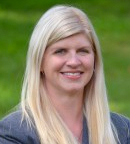 McCorkindale McCorkindale |
McCorkindale, as a leader of PR Society of America, including director of the Society-controlled Universal Accreditation Board and past chair of the Society's Educators Academy, represents the competitor of IPR—the Society’s Foundation, which has battled IPR from Day One.
IPR broke away from the Society in 1989 because IPR leaders could no longer tolerate the demand that all directors be APR. Legally, the 501/c/3 charitable/educational arm of the Society (a tax status that allows companies to deduct contributions from their earnings) was supposed to be “independent.”
But soon as the 501/c/3 exercised its independence, the leaders of PRS, smoke coming out of their ears, denounced the new entity and created the PRS Foundation. The last thing the PR industry needs is two such entities.
Two PR 501/c/3’s Remain Tiny
Neither has gone much of anywhere in 26 years. Income of IPR in 2014, not counting dubious “in-kind” donations of service totaling $279,00, was only $674,012. The Society’s Foundation only took in $250,526 in 2013, latest return available. IPR is the only group we know of that reports donated goods and services as income. It doesn’t belong in a financial report except to bloat results.
On the IPR plus side, it put its 2014 audit on its website April 17 in the public area, showing transparency and openness.
Opposite to this is the culture of McCorkindale’s PR Society which provides no such posting. It will fight the O’Dwyer Co. tooth and nail when we try to get it. Two members were expelled from the Society last year just on suspicion of accessing the audit for us and without a hearing of any kind.
That alone should bar McCorkindale from having anything to do with IPR. It’s only the tip of the iceberg of the PR Society’s abusive practices which include blocking an O’Dwyer exhibit at its national conferences, blocking Jack O’Dwyer and other reporters from its Assembly from 2011-2013, and blocking O’Dwyer membership in the Society. IPR's slogan is that it recognizes the "science beneath the art of PR." Boycotting and stonewalling are anything but scientific.
The PRSA Foundation, in typical “Who needs the press?” fashion, says any reporter who wants to attend its Paladin dinner April 23 honoring Charlotte Otto, who retired from Procter & Gamble in 2009, will have to pay $500. Lou Capozzi heads the Foundation.
APR Participation Plummets
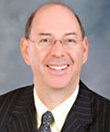 Forde Forde |
Another major negative attached to McCorkindale is her seat on the UAB, ten of whose 17 members are from the PR Society. John E. Forde, Ph.D., head of the Dept. of Communication, Mississippi State University, and a PRS member, is 2015 UAB chair.
There has been a steep, even catastrophic drop in new APRs as PR people turn away from this bogus offering.
The UAB website shows 97 new APRs for 2014, a drop from 180 in 2013 and 170 in 2012.
The 97 who passed in 2014 includes members of seven other groups. UAB stopped breaking out totals by member groups several years ago. PR Society members passing APR typically made up 85% of the total. So about 85 of those getting APRs in 2014 were from the Society. That contrasts with 346 members becoming APR in 1992 when membership was only 15,462. It is currently 22,000.
A multiple-choice test in 2003 replaced a test that required hours of writing.
PR Society’s Own Research Gutted APR
PRSA paid at least $100K for a study by consultant Laura Freebairn-Smith in 2013 to help observe the 50th anniversary of APR in 2014.
She delivered a number of haymakers to the program that have been ignored by the leaders. They had crippled her research from the outset by not allowing her to ask the 750 members she interviewed whether or not the program should be dropped. Mickey Nall, 2013 chair, said “Abandoning APR is not an option.”
Since UAB is not “independent,” it lacks the power to “accredit” anyone, said Freebairn-Smith.
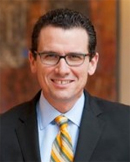 Suris Suris |
Her other barbs were that UAB does not “address concerns of ethical violations,” its maintenance requirements are “not strict enough,” its website is “dated and does not convey an image of a robust, successful credential,” and no other organization has something like the “Readiness Review” that the UAB conducts before candidates can take the test.
She noted that 30% of certifying programs have been dropped or are being considered for discontinuation. IABC dropped its ABC program two years ago in favor of ISO certification which it is seeking.
The UAB test since 2003 is multiple choice at a time when writing skills are what employers want. The demand for good copy from PR people is escalating because media revenues have plummeted, erasing tens of thousands of jobs. Careercast has just named “newspaper reporter” as the worst job among 200 on its list.
With so many negatives loaded on APR, one might expect the Society to at least re-evaluate it.
2014 Assembly Doubled Down on APR
The opposite happened at the 2014 Society conference in Washington, D.C. Speaker after speaker, including candidates for chair-elect Mark McLennan and Blake Lewis, reaffirmed the Society’s commitment to APR. Kathy Barbour, 2015 chair, said, “I wear my APR pin proudly.” Joe Cohen, 2014 chair, vowed to find new ways to improve and market APR.
If McCorkindale wants to leave the academic world, following the path of 2011 Society chair Rosanna Fiske, ex-Florida Int’l University who is now VP-Florida for Wells Fargo, she might look to Wells Fargo or other blue chips whose executives are Society members.
Also working for Wells Fargo as VP-communications, Mid-Atlantic region, is 2004 Society chair Del Galloway. He is one of the three co-chairs of the 2015 conference in Atlanta Nov. 8-10.
Oscar Suris, head of corporate communications of WF, one of the four biggest banks, is co-chair of IPR.
He described McCorkindale in glowing terms: “Tina is a well-respected researcher who has been active in academic and professional organizations that are squarely aligned with IPR’s focus on PR and communications.”
IPR, PRSA Values, Practices Differ
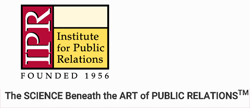 The PR Society’s behavior is not aligned with the values or communications practices of IPR. The Society sold copies of authors’ articles without their permission from 1978-94, refusing to speak with them and demanding a lawsuit. It closed the conference exhibit hall from 1995-99 when exhibitors asked for better treatment. It instituted a formal press boycott in 1999 that resulted in charges that the board itself was unethical. Rather than try the charges, the Society switched to an unenforced Code.
The PR Society’s behavior is not aligned with the values or communications practices of IPR. The Society sold copies of authors’ articles without their permission from 1978-94, refusing to speak with them and demanding a lawsuit. It closed the conference exhibit hall from 1995-99 when exhibitors asked for better treatment. It instituted a formal press boycott in 1999 that resulted in charges that the board itself was unethical. Rather than try the charges, the Society switched to an unenforced Code.
PRSA withholds its 990 tax return each year from both its Assembly and the O’Dwyer Co., filing it almost at the final deadline of Nov. 15. Is that the “free flow of information” promised by it Code?
Suris, co-chair of the 2013 conference in Philadelphia, did nothing to remove the blockage of the O’Dwyer Co. at that meeting. Calls and emails to him were not returned.


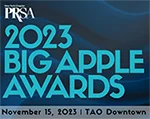 PRSA-NY today announced its five honorary co-chairs for its Big Apple Awards ceremony gala slated for TAO Downtown on Nov. 15.
PRSA-NY today announced its five honorary co-chairs for its Big Apple Awards ceremony gala slated for TAO Downtown on Nov. 15. PRSA-NY president Carmella Glover today issued a "heartfelt apology" on behalf of the chapter for her Oct. 14 message that "caused disappointment and hurt to some of our valued members."
PRSA-NY president Carmella Glover today issued a "heartfelt apology" on behalf of the chapter for her Oct. 14 message that "caused disappointment and hurt to some of our valued members."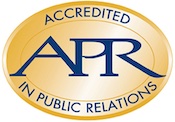 The leadership of Public Relations Society of America is backing a move to change the current “must-have” APR accreditation to “strongly preferred” as a requirement for a seat on its board of directors.
The leadership of Public Relations Society of America is backing a move to change the current “must-have” APR accreditation to “strongly preferred” as a requirement for a seat on its board of directors.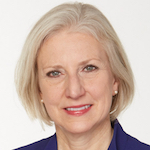 Public Relations Society of American today named Linda Thomas Brooks CEO, succeeding CFO Phil Bonaventura, interim chief since July 2019.
Public Relations Society of American today named Linda Thomas Brooks CEO, succeeding CFO Phil Bonaventura, interim chief since July 2019.


 Have a comment? Send it to
Have a comment? Send it to 
No comments have been submitted for this story yet.